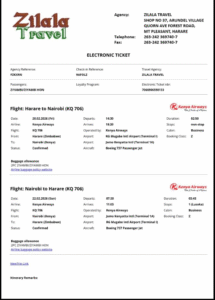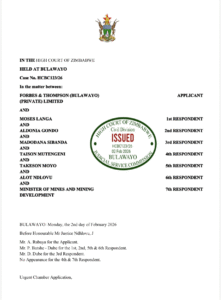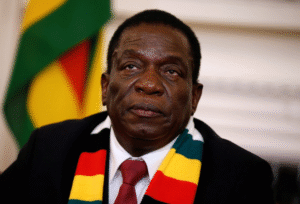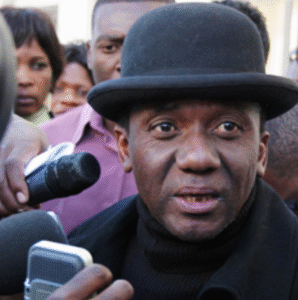A TALE OF DESTRUCTION AND GREED
In the heart of Zimbabwe’s Midlands province, the once idyllic Boterekwa escarpment has become a stark symbol of environmental degradation, a casualty of unchecked mining practices. This story of ruin, largely attributed to the activities of Collins Mnangagwa, the President’s son, and his company Chengxi Mining (Pvt) Ltd, highlights a grim reality where natural beauty succumbs to the allure of gold.
The NewsHawks has persistently covered the Boterekwa saga, revealing the transformation of this breathtaking landscape into a desolate wasteland over the past three years. Once celebrated for its lush vegetation and vibrant wildlife, Boterekwa now suffers under the weight of industrial greed, marked by gaping open-pit mines and chemical pollution.
Collins Mnangagwa, a key figure in this transformation, chairs Chengxi Mining, a venture with Chinese origins. His ascent to wealth has been meteoric, especially since his father, President Emmerson Mnangagwa, took office following a 2017 coup. Locals recall a time when Collins, like his siblings, led a modest life, but today he resides in a sprawling mansion in Hellensville, Harare, a stark contrast to the struggling existence of his earlier days.
The environmental toll at Boterekwa is profound. The once-picturesque escarpment, also known as Wolfshall Pass, now lies barren. The scars of large-scale excavation are visible across its terrain, with the natural contours brutally altered and the air thick with the acrid smell of chemicals like cyanide. The relentless din of machinery has replaced the tranquil songs of birds, disrupting not only the landscape but also the lives of the local communities.
This transformation has not been without its beneficiaries. The ruling party, ZANU PF, has reportedly received office donations from Chengxi Mining, and local chiefs have been appeased with various favors, suggesting a complex web of political and economic entanglements. These relationships underscore a broader narrative of exploitation and complicity that extends to the highest levels of government.
Environmental damage at Boterekwa has spurred public outrage, particularly as the President frequently passes through the area, making the devastation impossible to ignore. Despite this, the destruction continues, with illegal gold panning and extensive mining operations wreaking havoc on the environment.
Local environmental experts and chiefs have voiced concerns over the ongoing degradation, calling for urgent government intervention. The Environmental Management Agency (EMA) has imposed fines and issued directives, yet the impact of these measures remains limited. Large-scale operations continue to flout regulations, with little regard for the ecological or social costs.
The consequences of such exploitation are visible not only in the ruined landscapes but also in the compromised health of the ecosystem and its inhabitants. Streams that once flowed clear are now polluted, and the biodiversity that characterized the area is vanishing. This environmental crisis extends beyond Boterekwa, affecting wider regions as similar mining activities proliferate along the Shurugwi-Zvishavane highway.
Amidst this bleak scenario, the local populace stands disempowered, their grievances overshadowed by the political might of those involved. The involvement of the President’s son in such destructive practices raises profound questions about governance and accountability in Zimbabwe.
As Boterekwa’s saga unfolds, it serves as a somber reminder of the enduring conflict between environmental stewardship and the pursuit of wealth. It’s a cautionary tale that resonates far beyond the borders of Zimbabwe, highlighting the universal challenges of balancing economic development with ecological preservation. In the face of such adversity, the global community must reflect on the values that guide its relationship with the natural world, lest we lose more than just the beauty of places like Boterekwa.





